After yesterday’s discussion in the comments about the lack of feasibility of annual fire door inspections, I think it’s time for a reminder of how much protection a closed door can provide during a fire. While inspecting all of the existing fire doors may seem like an insurmountable task, I strongly believe that inspections are the key to making sure fire doors will be closed and latched if there is a fire. In addition, public education is needed in order to raise awareness of the benefits of closed residential doors, and to discourage people from propping open or disabling fire doors.
Several news stories have hit my desk lately…
Door plucked from Grapevine fire shows how closed doors can save lives – NBC 5
At the meeting, Grapevine fire officials challenged other departments to join them in launching campaigns to get the “close the door” message out to the public.
To illustrate the point, the Grapevine Fire Department recently pulled a door that had been in an actual fire. You can see how badly the flames damaged one side of the door that was directly exposed to the fire. On the other side there’s hardly any damage at all, showing how well a door can shield against the worst of heat.
~~~
Dubai hotel’s sprinklers ran out of water 15 minutes into fire – The National-UAE
Fire doors, meanwhile, helped save lives at the hotel, officials said.
“Almost all the fire doors stayed intact. That saved people, plus the hard work of our crews,” said Mr Bright. “Quite often in fires the smoke will kill people before the fire. The fire door not only holds the fire back it also holds the smoke back.”
~~~
Parliament Hill fire unsolved after a century – Huffington Post
More importantly, there is the Library of Parliament — the old pine carving and wood panelling a throwback to what some of the old Centre Block would have been like. The blue iron work with gilded tips along the library’s exterior also went around the original building.
A steel fire door, and plenty of firefighters, helped save the structure and the books inside.
“The whole thing was a work of art, and from that standpoint of view it was a priceless loss,” said Lucile Finsten, co-author of the 1988 book “Fire on Parliament Hill!”
~~~
Professionalism, safety features kept firefighters cool under pressure in campus blaze – The New-Gazette
Firefighters determined that the fire started in the first-floor living area, but the cause remains under investigation. A police detective has been assigned to help with that.
“There were five people who jumped from the second floor. They threw a mattress out and jumped to the mattress. It’s a pretty good fall. It’s about 20 feet,” Ludwig said, adding that “they did not have fire looking at them.”
The reasons why there was no fire upstairs are what makes Ludwig proud.
“That’s because the fire door on the second floor held that fire and smoke in check. No fire and no smoke penetrated the second floor, but the smoke alarms went off,” he said, alerting the sleeping residents.
~~~
From the Facebook page – Close the Door For Life…
.
Have you seen any news reports that illustrate the value of closed doors? Send me a link!
And…there was such high demand for the fire door inspection cards that we ran out! They’re back in stock, so if you would like some or if you haven’t received yours, please let me know.
You need to login or register to bookmark/favorite this content.

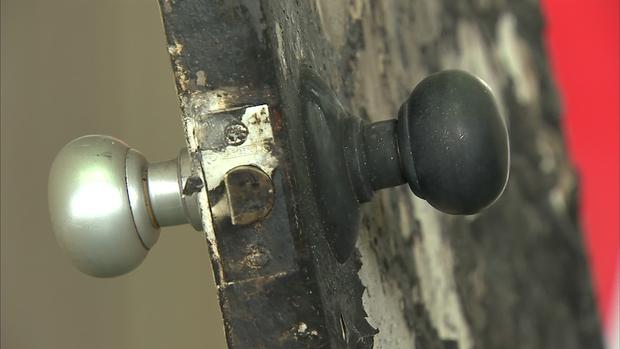
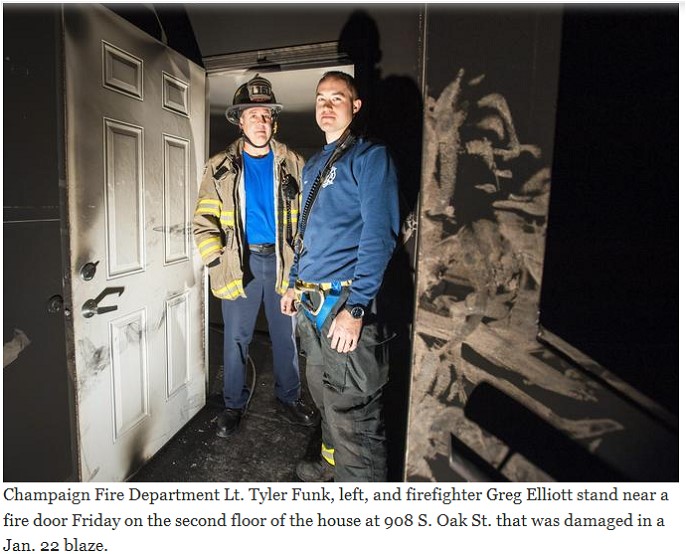
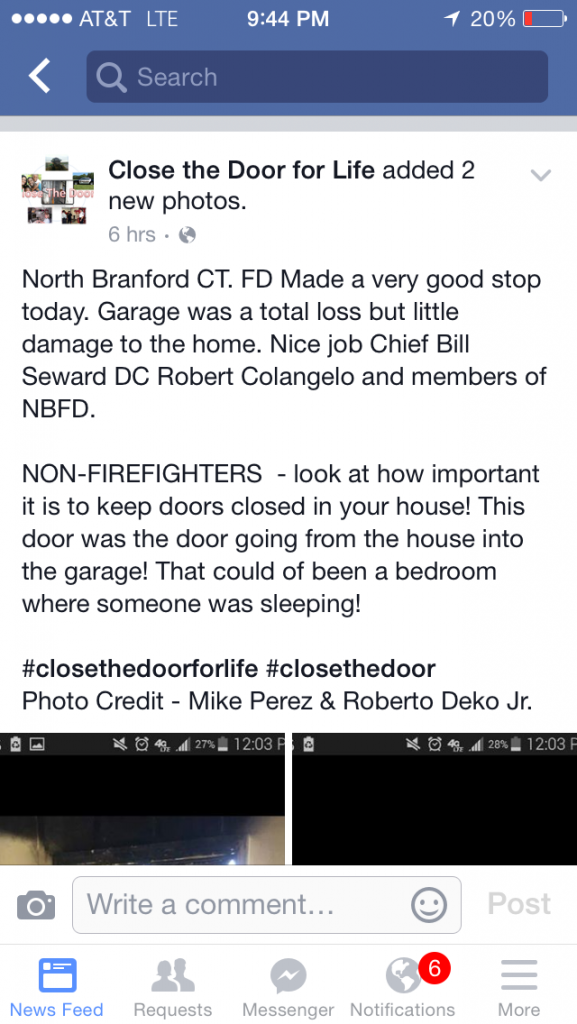
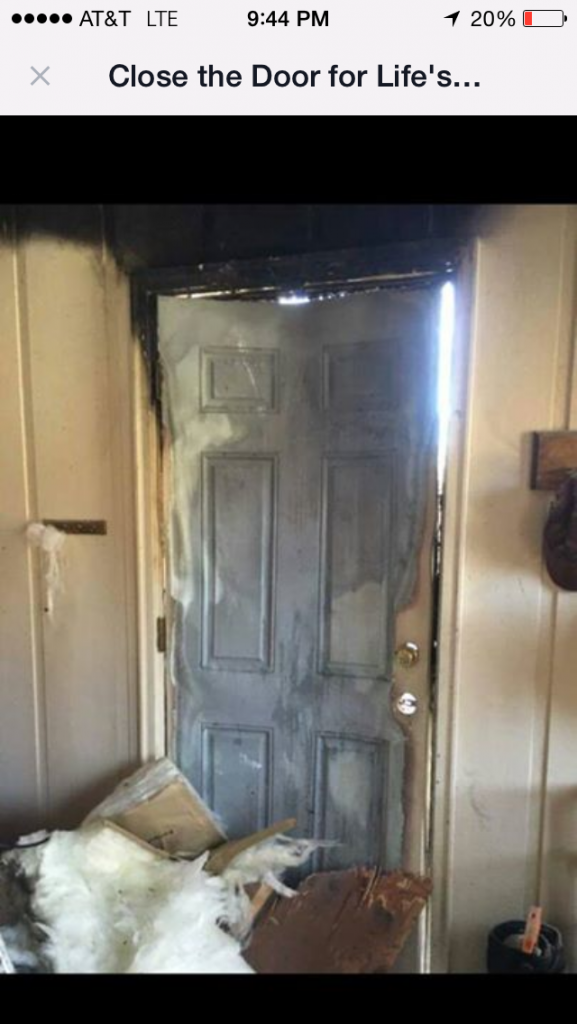
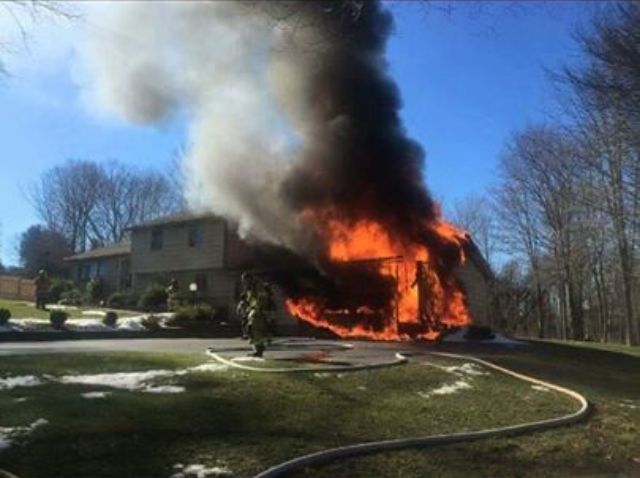
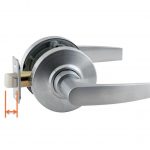
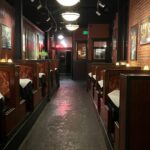


Lori,
I have only visited a few countries outside of the US with my door hardware glasses on. Most of them do not have door closers on fire rated doors or at least as many as in the US. I have also noticed they tend to stay closed and latched by users who close the door behind them or a building attendant.
Would you say other cultures are failing to keep people safe or that the US culture is lazy and inattentive having grown accustom to self-closing doors?
Nathan
Hi Nathan –
I’m not sure of the history or reasons behind the differences in codes from one country to the next. I think self-closing fire doors (or automatic-closing or power operated) are important because they provide the highest degree of safety vs. relying on people to keep the doors closed.
– Lori